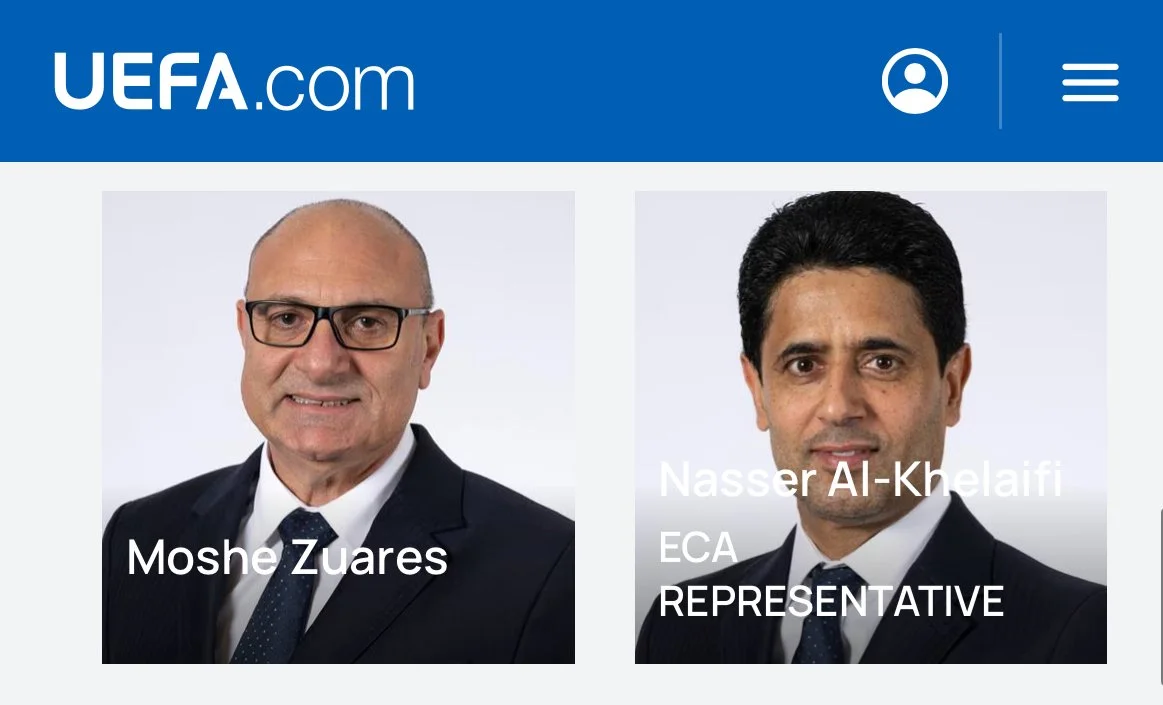Israel’s UEFA ban still looks unlikely.
The headlines are dramatic, the pressure is mounting, and the calls for Israel’s expulsion from UEFA are getting louder by the day. But when we take a closer look at the actual mechanisms and political realities inside European football, the prospect of Israel being banned still looks remote.
The Push for a Ban
Qatar’s Influence: Following the recent strike in Doha, Qatar has been lobbying for Israel’s suspension. Not directly—since it’s not a UEFA member—but through its influence hubs in European football: federations, board members, and committee representatives. A senior Qatari source confirmed that while Qatar is actively pushing, it does not want to be seen as breaching UEFA’s “ethical and political code of conduct.”
Potential ExCo Vote: A UEFA Executive Committee vote (if held next week) would require 17–18 out of 20 members in favor. While many members are not pro-Israel, securing such a majority will not be simple.
High Stakes: A ban would end Israel’s 2026 World Cup qualification campaign and remove Maccabi Tel Aviv from the Europa League.
Mounting Pressure
UN Demands: UN experts have called for Israel’s immediate suspension from FIFA, citing the Gaza war as genocide.
European Protests: From the “Stop Killing Children” banner at the UEFA Supercup to the Show Israel the Red Card campaign, protests inside and outside football grounds are multiplying.
Political Momentum: Western leaders, under pressure from their publics, are being pushed toward endorsing wider cultural and sporting boycotts.
Why a Ban Remains Unlikely
No Immediate Threat: The Israeli FA insists there is currently no real danger of suspension.
US Backing: Washington has been lobbying behind the scenes to prevent a ban, using its influence in both FIFA and UEFA.
Trump–Infantino Alliance: With the 2026 World Cup ahead, US President Donald Trump and FIFA president Gianni Infantino are working closely. Infantino, who resides in Qatar and supported the Abraham Accords, is unlikely to act against Israel now.
Regulatory Gaps: Unlike Russia’s case, UEFA lacks clear mechanisms to enforce an immediate ban on Israel. The timeline and circumstances are different.
Čeferin’s Position: UEFA president Aleksander Čeferin has repeatedly stated he opposes banning member associations purely for political reasons.
Current Status (Sept 26):
No ban in place.
No confirmed date for a UEFA ExCo meeting or vote.
If a vote takes place, most federations appear to lean toward suspension.
If passed, Israel’s World Cup hopes end and its clubs are removed from Europe.
Any decision could be delayed by an appeal to the Court of Arbitration for Sport (CAS).
Public opinion is split, but pro-ban voices dominate the conversation.
Bottom Line
A suspension would set a historic precedent, forcing UEFA to redefine how it handles the intersection of politics and football. But as long as Čeferin, Infantino, and Trump remain influential, Israel’s suspension from UEFA or FIFA looks improbable.

